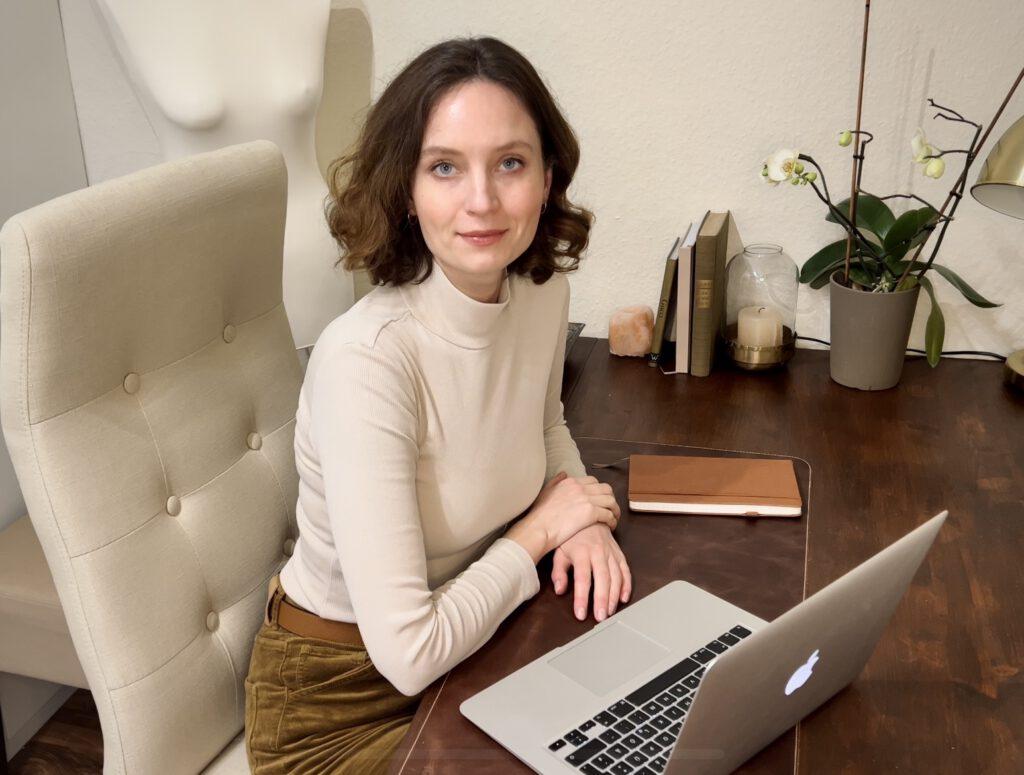Affiliate Disclosure
How much vacation can you take a year? especially as an entrepreneur or self-employed?
Holidays are important for rest and well-being. This is probably clear to all of us, but do you really have the feeling that you have enough vacation and relaxation? Or does a week off end with you, but somehow again in the fact that you are working on something? So how much vacation should you really take in a year? Of course, this question is not easy to answer in a general way, as every person has different needs. But today we deal with this question and alternatives to regular vacations. Yes, that’s right, there are alternatives, I think.
The legal regulation
In Germany, there is a legal regulation on the minimum number of vacation days. According to the Federal Leave Act, every employee is entitled to at least 24 working days of vacation per year, with a 5-day week. However, as a rule, employers grant more vacation days. The standard in Germany is currently 30 vacation days with a 5-day week. So that’s the equivalent of 6 weeks off per year. If you have children, you are probably already confronted with problems at this point. Because children in Germany have 75 working days of school holidays, or 15 weeks, in all federal states, as stipulated by law.
The whole system is still designed so that only one parent actually works full-time and the other, at least theoretically, has the time to assert the children. Of course, nowadays there is also an after-school care center or emergency care everywhere. But in my experience, unfortunately, this doesn’t always work smoothly and especially from us women, we are somehow always expected to be able to drop everything in order to take over the childcare ourselves. And for the kids, it’s actually not nice to still have to go to school during the holidays and have to get up early every day, while other classmates may already be able to spend the morning in the outdoor pool or are actually out of town. Not really a nice experience for the kids, I think. But if you’re running a business, you can’t just take 15 weeks off a year, can you?
If you don’t have children, you probably don’t have to worry about it, but for many of us it is probably a factor that also plays a role in annual planning. How productive we can be, as entrepreneurs, also depends on how much time we can and want to invest in certain phases.
So how often should you take a vacation?
In general, it is probably advisable to take a vacation several times a year instead of planning a longer vacation only once a year. Regular breaks can reduce stress and help you recover. Getaways can also be a great way to get away from it all. Anyone who works a lot over long periods of time and is forced to do so often finds themselves in a chronic survival mode at some point.
It is probably clear to everyone that this is not healthy, but the influence this state has on our creativity and productivity is perhaps not quite so obvious. You drift further and further into this state over time and often don’t notice it until much too late, when you’re burned out and forced to take a break. Unfortunately, I am prone to such behavior myself and often cannot stop myself when it comes to work. When my body goes on strike at some point and I finally take a vacation as a result, I notice every time afterwards how much more creative I am afterwards that I even get twice as much done as before.
It is therefore not more effective to simply keep working. You don’t automatically get more done. On the contrary. Regular, proper recovery phases really refuel us and then you can potentially do so much more in half the time. Planning vacations is therefore an essential part of annual planning. Plan important events in your company, goals you want to achieve or product launches that are coming up, for example not at times when you potentially have less time, perhaps because the children are on school holidays, or because you have already worked through three months. This will make a significant difference if you plan for this right from the beginning of the year. The most challenging times are suitable for phases after a vacation, so that you can cope well without suffering burnout at the end.
The importance of holidays for health
Holidays are important not only for recreation, but also for health. Studies show that regular vacations can reduce the risk of cardiovascular disease. The immune system can also be strengthened by a holiday, as the body can recover and regenerate. Stress hormones flood the body every day if they are not broken down accordingly and an increased level of stress hormones in the body becomes normal, which is called survival mode or flight-or-fight mode. This state is so energy-consuming for the body that it is forced to budget differently than it actually does. It therefore diverts resources from other sources in order to be able to maintain this mode, or to have to do so. As a result, our immune system is shut down and we become more susceptible to infections. Cell renewal no longer works properly and we age faster. Certain nutrients are consumed more frequently, which can lead to mangles more quickly. Which then leads to further problems. A vicious circle.
The worst thing about it is, we get used to such a state and forget what is actually normal and healthy for us. Women in particular tend to really bring themselves to the point of burnout before they finally stop. For example, 42% of all women in surveys said they felt burned out. For men, it was still 35%, not exactly a little. Roughly speaking, it affects every 2-3 adult individual. In the case of children and adolescents, it is now said that 15% of people are affected.
Just imagine, 15 out of 100 children in Germany suffer from burnout! And our news spreads dystopian predictions about the future, according to which we will all soon be unemployed because artificial intelligences and robots will take over our tasks. What nonsense! It is absolutely necessary that work that no one likes to do, that is perceived as time-consuming and energy-consuming, is finally taken over by robots and AI. We as a society just have to learn to use them in such a way that we all benefit from them and not just a small minority of people who are at the top. But back to the topic.
The alternative:
An insight
I will begin at this point with a confession. I’m a workaholic. Already since my youth. My last, real 14-day vacation, in which I really had only free time, was 21 years ago. Since then, I’ve basically worked through, except for a long weekend for a family visit. Now you’re probably thinking, why does she tell us to take more vacations, and how important enough vacation is, but never takes time off yourself. Yes, I know, it doesn’t seem to go together. But no, I say this and emphasize this topic so much because I know how important it is and what happens when you don’t take the topic of recovery seriously and what it’s like to have a burnout. And because I have decided to change this year in terms of that. So far, I have not succeeded.
Strictly speaking, I haven’t had a single full day “off” so far this year. But the year is not over yet…
However, for many tasks, I can also arrange for myself what and when I do it. And I really enjoy doing a lot of them. So it doesn’t really feel like real work for me.
But I’ve been thinking about the topic of work-life balance for a long time and also what kind of role model I am with my behavior, e.g. for my children.
I think one solution for me is to fundamentally change the way I live. And maybe, in the end, this is the best “vacation” you could ever have.
A life in a place that is like a holiday
Before the Covid pandemic, remote jobs were probably the exception. Many companies have now given their employees the opportunity to work remotely. But I also know for sure that many companies still prefer employees to come to an office. However, you can see on social media that many people are now rebelling against it. Of course, there are jobs that cannot be done remotely.
But companies that are affected by this are actually starting to change their working weeks to a 4-day week. And these companies experience great confirmation of this and receive significantly more applications than their competitors, who still stick to 5- or even 6-day weeks. At some point, employees will have reshaped the world of work according to their ideas. At the latest when the boomer generation will all have retired in the next few years. None of the younger ones seem to see any sense in spending forty or more hours in a job or an office that, in the worst case, has to be commuted back and forth for another hour. You can already see that the inner cities are changing. Many shops are closing, office space is empty.
So why not consciously live in a place that is equivalent to a holiday? What digital nomads have been doing for years, the rest of us can actually do too, can’t we?
You don’t necessarily have to live out of your suitcase or backpack or live in hotels. You can also rent an Airbnb or holiday home for a longer period of time. Or you can even consider a complete move. This can be, for example, a house by the lake or by the sea. Or a cabin somewhere in the mountains. So you have the feeling of always being on vacation without actually having to take vacation. Provided, of course, that you have the opportunity to work remotely. A holiday or a move to a new place can not only contribute to relaxation, but also serve as inspiration. By traveling or discovering new places, you can gain new impressions and promote your creativity. Exchanging ideas with people from other cultures can also lead to new ideas and perspectives.
But is that possible with a family?
But wait, that’s not possible when you have children, they have to go to school, don’t they? Not quite. If you are registered in Germany, your children are of course subject to compulsory schooling in Germany. But “children of traveling parents” are allowed to travel with them and be taught accordingly on the road or “at home”. Of course, you have to apply for this. That’s one possibility. Another is that you deregister from Germany if you are abroad. As long as you are still taxable there due to a job in Germany, you can even continue to receive German child benefit if you apply for it accordingly. The children can then go to school in their new place of residence or be taught at home. In most other countries in Europe, there are mainly “educational obligations” and no “compulsory schooling” as in Germany. This means that the children have to learn, but it doesn’t necessarily have to be in a school.
This is certainly quite controversial, I realize that. But to be honest, I take a rather critical view of the German school system and claim that only a fraction of what the children learn there is actually helpful for them and their lives. The rest, let’s face it, is more of a form of conditioning to a life as a “workhorse” in our economic system, until retirement. And who has children who get up in the morning and can’t wait to go to school? No one probably…
At least we adults still have a choice and can theoretically change an unloved job if we want to. But the children don’t, they basically have no choice throughout their childhood. Maybe it’s time to stop stigmatizing alternative ways of life, to question what we think is “normal” and to acknowledge that our system is actually extremely outdated, not everyone benefits from it equally, and obviously makes the people in it sick in the long run, including our children.
For me, the decision has actually already been made, I will fundamentally change my life situation in the next few months.
At the moment, I’m still hesitating between a one-year trip around the world, or a direct move to the sea or at least to the countryside. But don’t worry, nothing will change here, I’ll take my work and you with me 😉
Result
Deciding how much vacation or free time you should take per year depends on individual needs. It is actually advisable to go on vacation several times a year and plan regular breaks. Even a place that resembles a vacation can be a great way to get away from it all, but even here, occasional changes are arguably important. Holidays are certainly not only important for relaxation and well-being, but also for health and as an inspiration for new ideas and perspectives. All in all, holidays should probably be considered as just as important a part of life as work and plan and enjoy them accordingly. How do you see the whole thing? Do you feel like you have enough vacation and free time? Do you often work too much, as I do? Are you also dreaming of moving to the sea or a trip around the world? Feel free to let me know in the comments.
I wish you a relaxing week.
All the best,
Christina
“I want to stroke the skull of the man who invented the holiday today.”
Jean Paul

Ich freue mich,
meine Neuigkeiten mit euch zu teilen!
Möchtet ihr Infos zu meinen neuesten Artikeln und den interessantesten Themen rund um Unternehmertum, Finanzen, Immobilien und Persönlichkeitsentwicklung direkt in eure Mailbox bekommen?
Dann meldet euch für meinen Newsletter an!
Ich würde euch gerne auf dem Laufenden halten.
About the author

Christina Ernst is the founder and CEO of Linen & Quince. She is also a designer, writer and real estate expert. She shares her experience and knowledge not only in her personal blog on christinaernst.net , where she writes about financial literacy, business start-ups, real estate knowledge and personal development, but also on our Linen & Quince blog. There she regularly writes about interior design, fashion and lifestyle topics. She loves interior design, art, antiques as well as elegant, sustainable and high-quality fashion.



